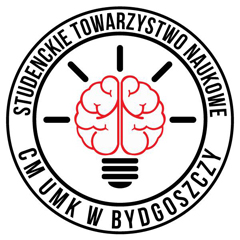Chairman: Agnieszka Nawrocka
Contact: a.aganaw@gmail.com
The activity of the Student’s Research Circle of Cell Biology and Ultrastructure involves examining the response of various cancer cell lines to chosen substences. The main research interests are related to the assessment of the impact of compounds of natural origin, cytostatics and drugs on the basic cellular processes (cell cycle, type of cell death, organization of the main components of the cytoskeleton, metastatic potential). Basic techniques used by students are fluorescent and immunohistochemical labeling of proteins, analysis of cytotoxicity, flow cytometry.
Participation in SRC of Cell Biology and Ultrastructure projects is associated with such benefits as:
- expanding knowledge in the field of cell biology;
- acquiring lab skills;
- preparation of slides and analysis in light, fluorescent or transmission electron microscopy;
- analysis of basic life processes of cells based on the results obtained using selected techniques;
- presentation of data during student’s conferences;
- writing publications for scientific journals.
We have already completed the following projects:
- The impact of niacynamide on Chinese hamster fibroblasts line CHO AA8 treated with UV radiation.
- Analysis of the cytoskeleton reorganization connected with the impact of natural compounds (green tea, caffeine, quercetin) in varied cells lines.
- The influence of house dust extract on normal lung cell Mrc5 and non-small lung carcinoma A549.
- The impact of quercetin on A549 cell line after SATB1 manipulation.
- Application of nanoparticles in medicine – the effect of nanoparticles on the resistance of A549 non-small cell lung cancer cell line to doxorubicin.
- The influence of oxymatrine on basic cellular processes of A549 cell line. Our current projects:
- Assessment of the combination of oxymatrin and 5-fluorouracil on the basic cellular processes of normal (HBEpC) and cancer (A549) lung cells.
- The effect of dexamethasone on the reduction of hypoxia-induced epithelial-mesenchymal transition in HepG2 cells.
- Metformin in the treatment of transitional cell bladder carcinoma.
- Effect of vitamin D on MCF-7 breast cancer cells.
